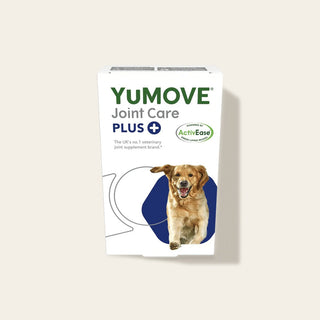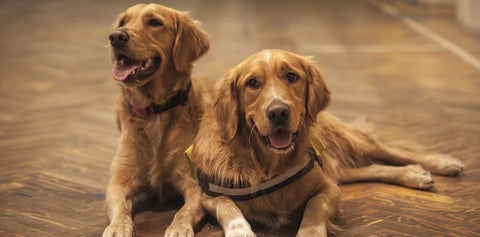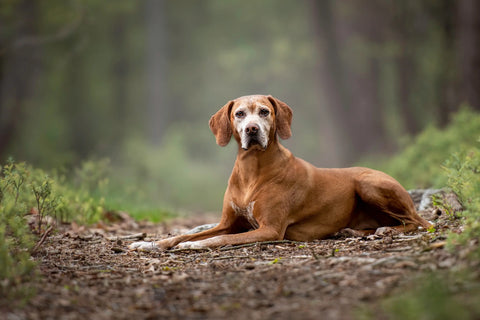

Ask The Vet: March round-up
It’s time for the next instalment of our ‘Ask the Vet’ series! In this round, our expert in-house vet, Dr Jayne Laycock BVetMed MRCVS, answers your questions on canine scratching and itching, what causes a dog’s joints to pop and click, the potential causes of incontinence in adult dogs, and more. Let’s get started…
“What are some of the potential causes of incontinence in adult dogs?”
There are many reasons a dog might experience incontinence.
The first (quite common) set of causes are connected to behavioural factors. If a dog doesn’t know where it’s appropriate for them to toilet, for example, or if they get over-excited, they may urinate inappropriately.
A weakness in the muscles in the urethra (the tube from the bladder to the outside) can also cause incontinence. While this is most commonly seen in female dogs that have been neutered, other issues with urinary tract muscle tone can also cause incontinence.
There are other causes of incontinence, too. If you have noticed any incontinence, increased urination, or thirst from your pet, we always recommend seeing your vet. Take a fresh urine sample with you if possible.

“Why is my dog scratching and itching?”
It’s useful to remember that occasional itching and scratching is normal for dogs. They can get small irritations, just like us! Your vet will be able to advise further on whether your pet’s level of itching is a cause for concern.
There are two main reasons why we see increased and uncomfortable itching and scratching in our pets.
Firstly, infections. Parasitic infections are common in our domestic pets (think fleas, ticks, and mites), but also bacterial or fungal infections of the skin can be very itchy and uncomfortable.
Secondly, we see allergies in dogs. They can suffer from a range of allergies, which can both present as skin irritation and itching.

“Why do dogs scratch and scoot their bums along the floor?”
Often, scooting is due to anal gland irritation. Dogs have two scent glands by their anus, which can overfill and cause discomfort. One of the ways dogs can try to address this is by scooting and rubbing their rear end.
Any another irritation around the rear, tail, or anus (such as infections, parasites, and injuries) could also cause your dog to scoot or scratch around that area.
Some dogs may engage in this behaviour without there being any obvious cause for concern, but it’s sensible to check with your vet if your dog does engage in any of these behaviours.
Could your dog use some extra joint or digestive support? If so, consider giving them Joint Supplements for Dogs, or Probiotics for Dogs, to help them lead their most active life, for life.




